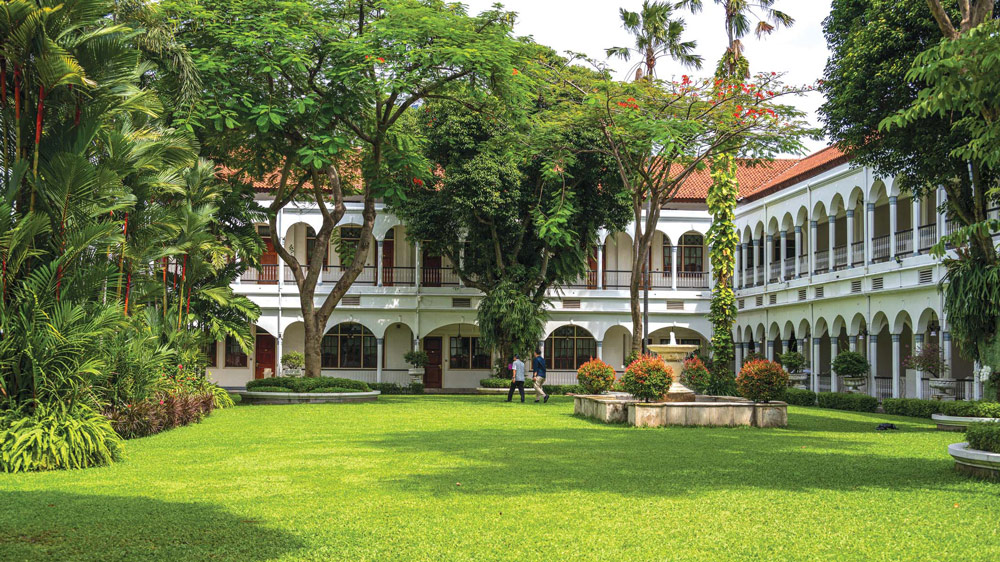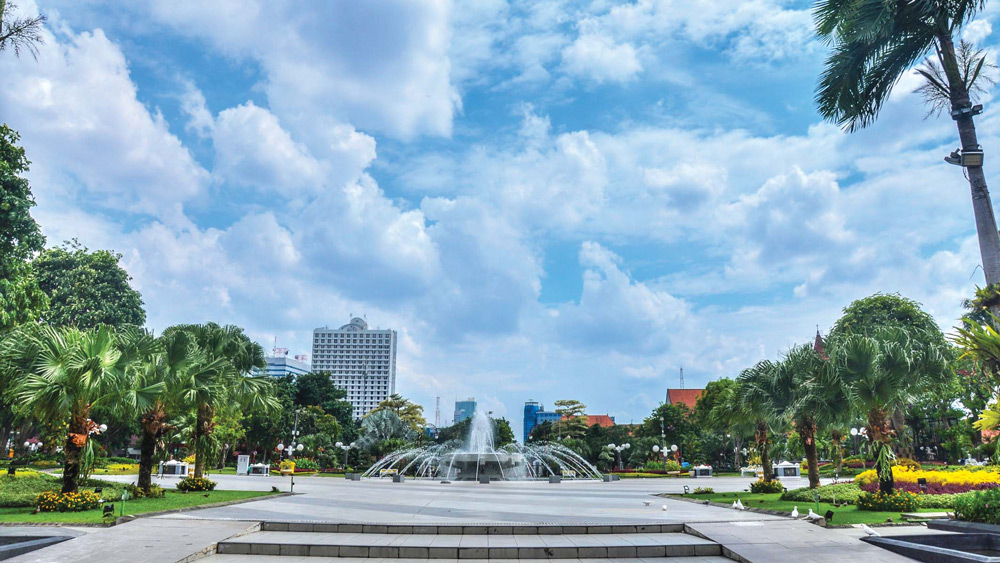Surabaya is probably not the first place you would have chosen as the preferred model for sustainability – its hot, busy, industrial and very developed… but as you will see when we examine all the reasons and criteria, it has an excellent chance of indeed becoming the first Indonesian city to be at least on the sustainability charts. But let’s go back to the beginning: why do we even need to think about making destinations ”sustainable”?

Simply because sustainable destinations will be preferred by tourists, and business visitors, over the unsustainable. It is already happening and will accelerate. But it’s also because they use less resources, become more efficient, save money and the environment. At the same time they benefit the host community, favour local employment, increase skills and increase local purchases. Some pretty compelling reasons!
So, Indonesia needs to develop sustainable destinations.
But expecting the whole archipelago to become sustainable is not possible in the short term, so we need to focus on the principal destinations first and the challenge is to create really sustainable destinations within Indonesia. But Where? Then How? Then, Who is going to manage the process?
Bali is by far the most important tourism destination but is a serious challenge due to its multiple – and frankly – mostly hard to control areas. Batam, Bintan and Lombok probably come next, followed by Toba, Jogja, Solo, Magelang or Manado. The other “Super Priority” destinations need action now too… before they are spoiled, especially Labuan Bajo. But ignoring urban centres: Jakarta, Bandung and Surabaya is wrong – especially if they are organised and ready for action!
Choosing the Best Prospective Destination

The aim is for the selected destination to achieve GSTC Certification – which is not easy to do – but does push all the right buttons, not just preserving the environment but addressing the social and community aspects as well.
But we need to look at the GSTC Destination Criteria and see if it is possible, and it might be if someone is training the destinations already, in all the right disciplines? Destination Management Responsibility, is the starting point and is already very challenging. Here’s what’s needed:
“The destination has an effective organisation, department, group, or committee responsible for a coordinated approach to sustainable tourism, with involvement by the private sector, public sector and civil society. This group has defined responsibilities, oversight, and implementation capability for the management of socio- economic, cultural and environmental issues. The group is adequately funded, works with a range of bodies in delivering destination management, has access to sufficient staffing (including personnel with experience in sustainability) and follows principles of sustainability and transparency in its operations and transactions.
Quite a challenge. And that is only Stage One of many….So what do we have to do?
How does a destination become sustainable?
We believe it all starts with hotels: which have professional management and huge interface with the public (rooms, banqueting, food and beverage, meetings etc) and strong ties to the community. Then moves to apartments: some have the same owners, again single building/complex management, less public interface but more residents.

Malls are after that since many have same owners as hotels and apartments. They have huge public interface, major carbon footprints and strongly interface with their tenants who are often major brands.
So we need to think how to get the hotels on their sustainability track. We think the best way is to break this down into 9 areas for action for each hotel: Energy, Air & Water, Waste, Emissions, Purchasing, Transport, Employee Relations, Community/Social. Finally the Stakeholders/Owners, and of course the Management.
Each of them has to establish exactly where they are today though detailed checklists, probably plus third-party audits on major items, then follow a plan to reduce their usage, improve their efficiency and eliminate waste…. whatever is needed.
Sounds Like an Expensive Process but It’s Not
In reality, the final outcome is exactly the opposite:
- Saving energy saves money & reduces emissions.
- Saving water saves money & reduces resources.
- Reducing waste saves money & reduces stress on the landfill/govt resources.
- Improving employee health & safety increases productivity.
- Increasing community engagement and local purchases reduces cost and emissions and increase PR value.
It’s all positive.
The Sustainable Surabaya Program

This is being led by the East Java Hotel Association, backed by MVB Sustainability Consultants and will include some of these programs:
- Professionally organising the waste collection from the hotels together with experts who make useable material from the waste.
- Engaging with partners to do Waste to Energy and Refuse Derived Fuel Programs
- Assisting hotels who want to go further in their energy and water reduction programs, and commit to full GSTC certification, which can be done on a group consulting basis or individually, but there is also a simplified self-assessment program for those who just want to get started.
- Introducing experts for those who feel they need help with water and energy, and maybe even solar power.
But the most important thing is that there is a partnership with all the hotels under the SUSTAINABLE SURABAYA banner which hopefully will invite the whole city to join in.
When there are enough partners there will be a “Sustainability Week” with a lot of activities to bring in the public and clean up the city and the rivers. This is what becoming sustainable is all about and Surabaya can lead the way.
For more information, visit mvbindonesia.com or contact aghie@phoenix.co.id






